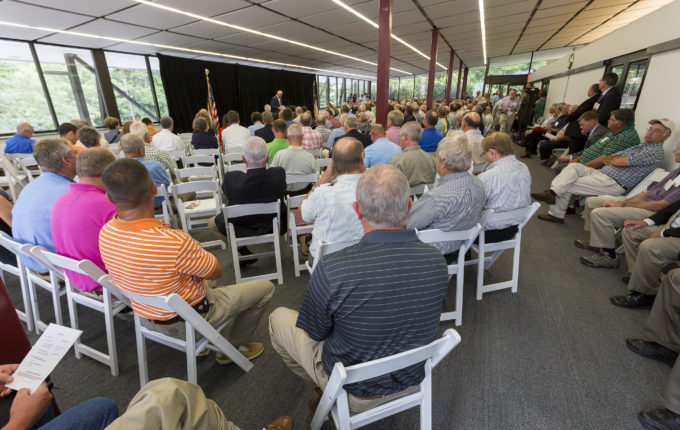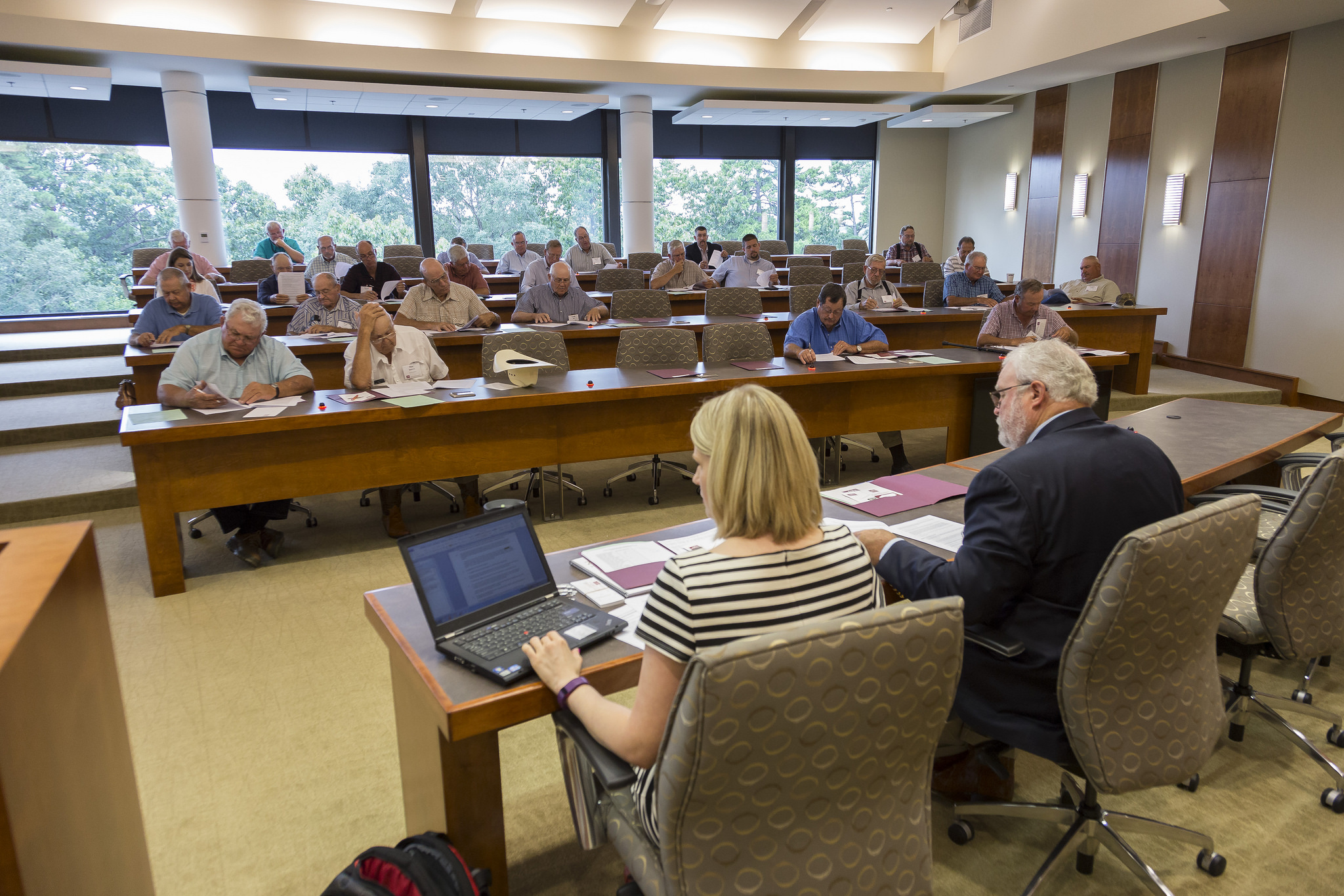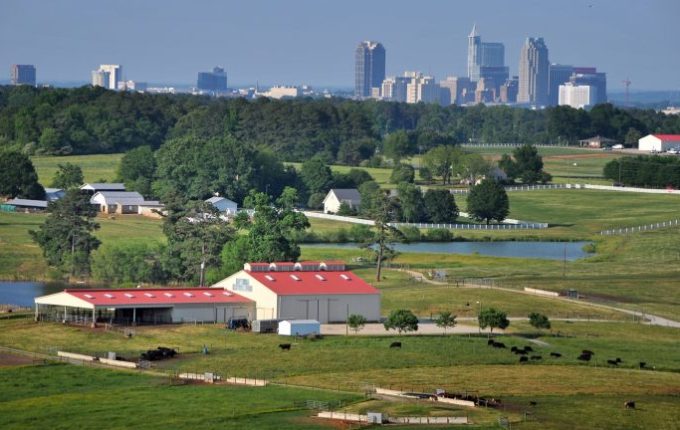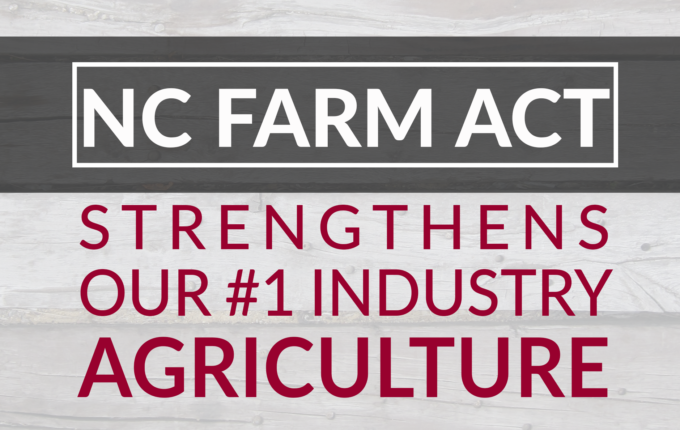This week we interviewed Warren Leadership Fellows Daniel Radford and Kortney Smith, who spent this summer interning with North Carolina Farm Bureau learning about public policy and agricultural advocacy. Daniel is majoring in Animal Science and Agricultural Science with a minor in Agricultural Business Management at NC State University; Kortney is a rising senior at NC State studying Agricultural Education.
What was your favorite part of the internship?
Kortney: My favorite part of the internship was flying out to Washington, D.C. with Linda Andrews and Mr. Wooten for a few days. I had never been to D.C. so it was a great experience. It was really eye-opening to see the major differences between how things are handled at the state level versus on a national level and I may have been inspired just enough to possibly take my future career back there!
Daniel: My favorite part of the internship was being able to expand my network, and learning more about the legislative process. Everyone at Farm Bureau has been very welcoming and willing to help in any way that they can, and I am very thankful that they made me feel welcomed this summer. I really enjoyed meeting everyone and building these relationships.
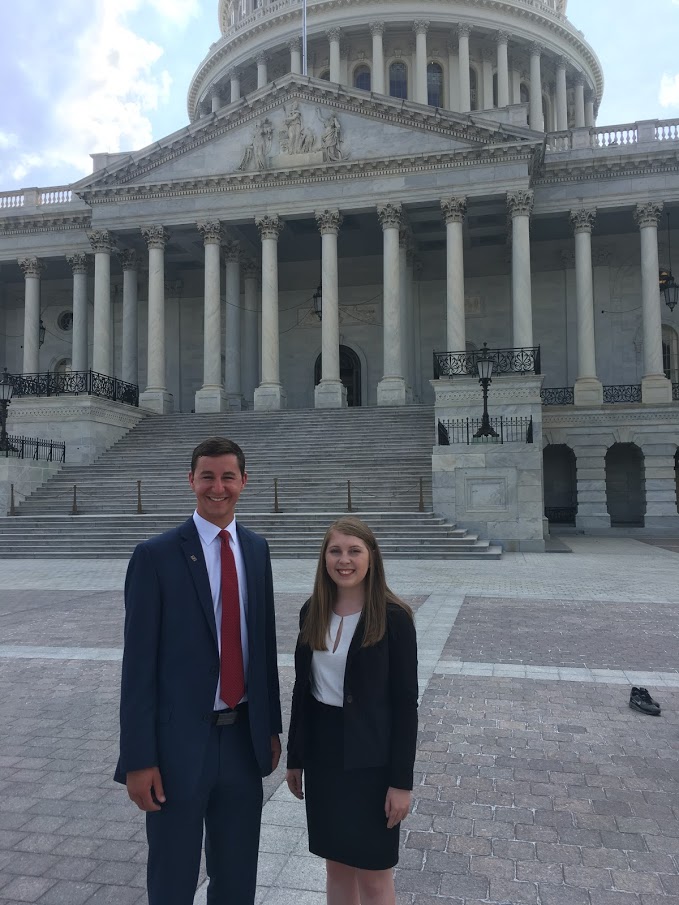 What did you find the most challenging during your internship?
What did you find the most challenging during your internship?
D: Since I was new to working with policy, it took some time for me to learn how the whole legislative process works. Jake and Paul spent many hours mentoring me and Kortney on how everything works at the General Assembly. On the first day, they spent time explaining how to look up bills and discussed how bills move through the General Assembly. I can definitely say that I would have been lost without them, but with their help, I understand the process a lot better than I did when I started.
K: The most challenging part of the internship was definitely learning how to navigate the General Assembly website and understand how bills were moving and what was important in each. Bill language can sometimes be very backwards and confusing, so we had to learn how to follow through all of the citations and correctly interpret what that particular provision meant. After the first few weeks though, we began to get the hang of things! We didn’t always interpret correctly, but we made drastic improvements from our first day!
What was the best advice you received?
K: Without a doubt, the best advice I received was to always ask questions. You can either sit and stay confused about something or ask questions and get a better understanding. There were so many times that I had no idea what was happening, but when I asked questions, things always made more sense and I could actually follow along and get more out of a particular experience.
D: Have an open mind and be open to new opportunities. Being open to new things has allowed me to be able to get the most out of my experience here at Farm Bureau. Walking into my internship this summer, I can definitely say that I did not know what to expect. This summer has been one I will always remember. As my internship is coming to an end, I am thankful for the many opportunities that I have been given while being a part of the Farm Bureau team.


